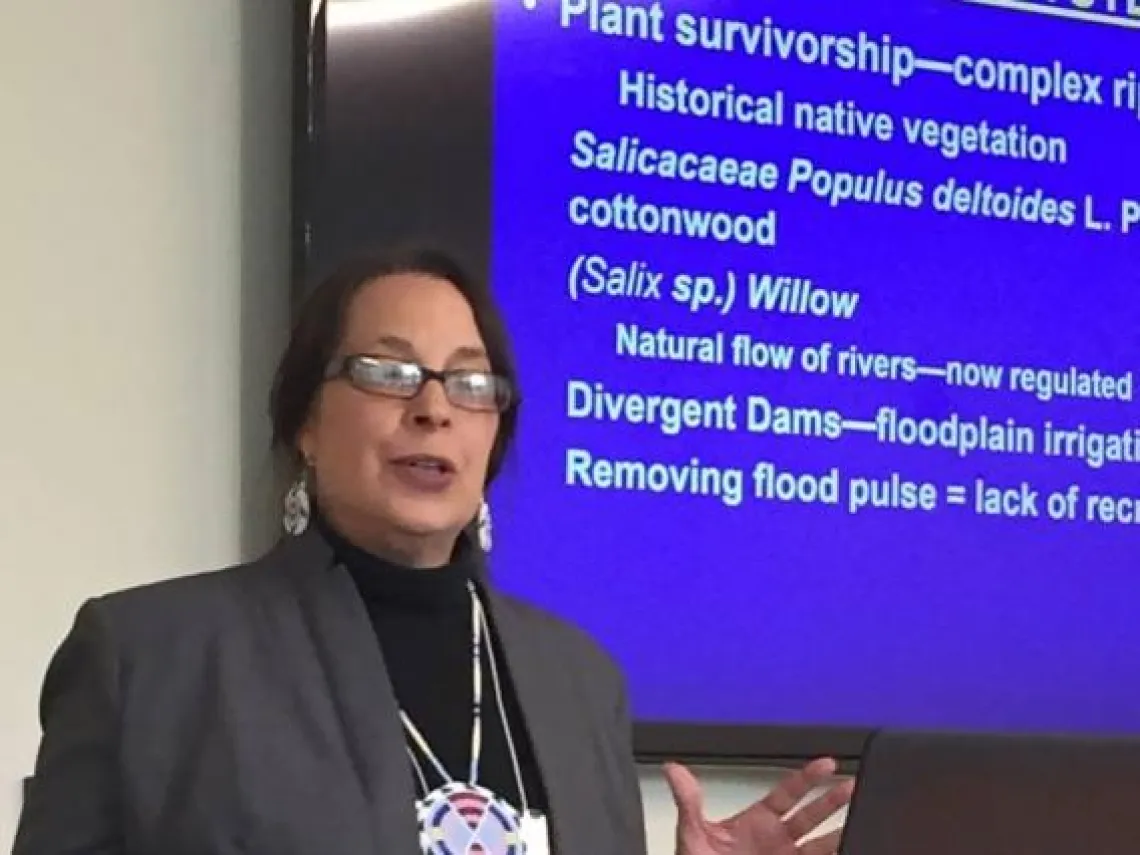CCASS/NNCAP Welcomes Dr. Valerie Small

Dr. Valerie Small (Apsaalooke'-Crow) has joined the Native Nations Climate Adaptation Program as an Assistant Research Scientist. Dr. Small will be working with Tribes in the Southwest Region in collaboration with CCASS and NNCAP within the Institute of the Environment as well as the DOI Southwest Climate Science Center (SW CSC). She will develop and deliver educational training modules to increase their environmental technical capacity in preparing for, as well as predicting near-term/future effects of climate change.
Prior to joining the UA, Valerie was a training consultant with Colorado State University, Natural Resource Ecology Lab (NREL), working with the North Central Climate Science Center. Her experience includes developing and conducting training and research to support North American Indigenous Tribes adaptation planning efforts to prepare for the effects of a warming climate.
Dr. Small worked with the director of the North Central Climate Science Center to convene a Climate-Smart Conservation Training sponsored by the Bureau of Indian Affairs in Rapid City (July 2015), and served as an instructor and presenter for a vulnerability assessment training in Santa Fe (November 2015).
Valerie completed her doctorate from Colorado State University in the Department of BioAgricultural Sciences & Pest Management/Weed Sciences Division in May 2013. Her previous work experience includes working with the Crow Tribe’s Environmental Department on Water Quality assessments in the Wolf Mountains (2002). She began working at the Tribal College in Crow Agency after she completed her MS degree in Biology in the spring of 2003. Valerie continued to work for LBHC as a program coordinator (Brownfields/NWF Environmental Justice Grant), research associate, and program/curriculum development, as well as teaching until the spring of 2013.
Dr. Small’s doctoral research is a cultural, ecological, and Native American land policy vulnerability assessment of Plains Cottonwood (Populus deltoides Marsh.). Valerie’s research analyzed the distribution of the size classes of the culturally significant Plains cottonwood relative to the invasive Russian olive (Elaeagnus angustifolia L.) within riparian ecosystems on the Crow Indian Reservation in South-central Montana. Her interdisciplinary research included the use of the species habitat prediction modeling tool (MaxEnt) for near-term (10 years) spread due to climate change, as well as qualitative and quantitative socio-cultural metrics (Tribal community surveys and Knowledge Holder interviews). Valerie’s doctoral research was supported, in part, by a USDA Tribal Colleges Research Grant, and the Alfred P. Sloan STEM Foundation Fellowship through the American Indian College Fund (AICF).

